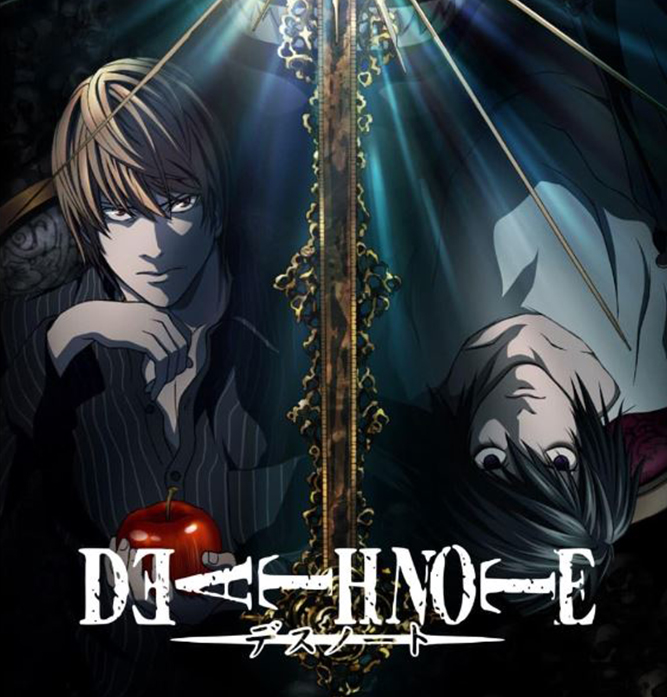Death Note Review
By Sam LeMay | Observer Contributor

Death Note is an anime that toys with the audience’s perception of justice and judgment. The main character, Light Yagami, also known as Kira, blurs the line between protagonist and antagonist. He introduces a twisted sense of curiosity as he explores his vision for a new world.
The 37-episode anime debuted in 2007, directed by Tetsurō Araki (“Attack on Titan”) and adapted from Tsugumi Ohba’s successful manga series by the same name. Death Note has also been adapted into a light novel series, several live action films and series, a video game, and a musical.
The story follows Light Yagami, a high school honors student who discovers a notebook with the power to kill anyone by simply writing their name in it. Motivated by a desire to combat injustice, he uses the notebook to systematically eliminate criminals.
In the beginning, Light’s actions seem justifiable; he’s killing murderers and people who have committed horrible crimes. Soon, though, he becomes obsessed. He begins killing those who have committed smaller, less threatening crimes along with innocent people who he believes are in the way of him becoming God.
This begs the question, what is a true form of justice? Sure, Light killed the criminals, but he didn’t do anything to change why the crimes happened in the first place. By killing them, he only instilled fear into the population, leading to a drastic drop in crime rates. By the end of the series, once Kira is no longer a threat, crime rates skyrocketed again.
At a certain point in the series, the conditions inside a prison were shown, where crimes continued to happen regularly within the jail walls. It became clear that imprisonment alone wasn’t enough to put an end to criminal activities. Kira understood this and viewed killing as the only means to make the world a better place.
The concept of justice has been debated for centuries without a universally agreed-upon answer. Death Note does a great job at prompting reflection about societal ideals, and sparking a new discussion about how crimes should be judged and the appropriateness of the death penalty.
Comments are closed.